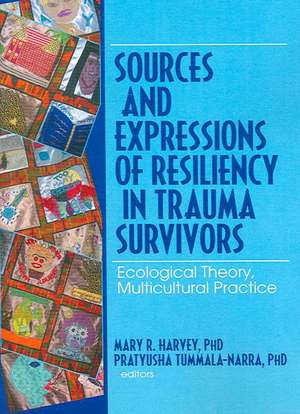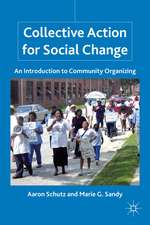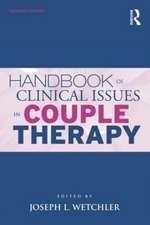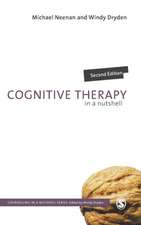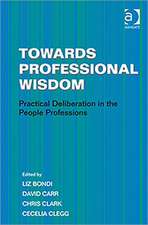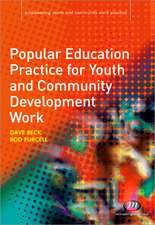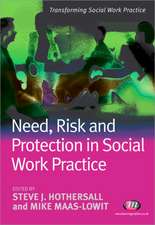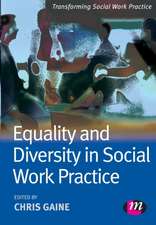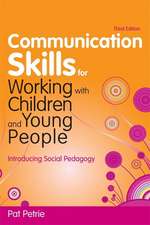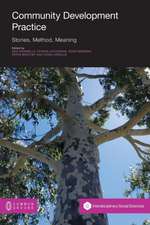Sources and Expressions of Resiliency in Trauma Survivors: Ecological Theory, Multicultural Practice
Editat de Mary R. Harvey, Pratyusha Tummala-Narraen Limba Engleză Paperback – 15 mar 2007
Sources and Expressions of Resiliency in Trauma Survivors provides a framework for understanding how-and why-resiliency is essential to the challenges of post-traumatic recovery. This unique book examines how this framework applies to trauma survivors, treated and untreated, from culturally, politically, and economically diverse backgrounds, using qualitative and quantitative research findings, clinical case reviews, and narrative studies to consider the implications for clinical practice, community intervention, and social change in the wake of violence.
Sources and Expressions of Resiliency in Trauma Survivors provides practicing clinicians with new insights into the need for a full continuum of resources for traumatized groups, including: crisis response, individual psychotherapy and group treatment, victim advocacy, community intervention and social change. The book also helps clinicians and researchers become more familiar with theory-driven tools for use in psychological assessment, case formulation, treatment planning and outcome research, as well as for assessing resiliency in diverse groups of treated and untreated trauma survivors, identifying sources of risk and expression of resiliency; and examining how trauma survivors struggle to draw meaning from their experiences.
Topics examined in Sources and Expressions of Resiliency in Trauma Survivors include:
- an ecological understanding of trauma, recovery, and resilience
- multidimensional trauma recovery and resiliency assessment tools
- first-person narratives of trauma survivors
- societal prejudice and psychological trauma
- expressions of resilience among incarcerated women, victims of childhood sexual abuse, Central American victims of war and political violence, sexually abused adolescent girls in Canadian child protective services, and other populations
- group therapy
- individual and social advocacy
- the history of the Community Crisis Response Team (CCRT) of the Victims of Violence Program
- and much more.
Sources and Expressions of Resiliency in Trauma Survivors is an important professional and academic resource for clinical practitioners, community psychologists, public health practitioners, grass roots community activists, and trauma researchers.
Preț: 323.43 lei
Preț vechi: 419.21 lei
-23% Nou
Puncte Express: 485
Preț estimativ în valută:
61.89€ • 64.79$ • 51.21£
61.89€ • 64.79$ • 51.21£
Carte tipărită la comandă
Livrare economică 07-21 aprilie
Preluare comenzi: 021 569.72.76
Specificații
ISBN-13: 9780789034632
ISBN-10: 0789034638
Pagini: 362
Dimensiuni: 148 x 210 x 23 mm
Greutate: 0.67 kg
Ediția:1
Editura: Taylor & Francis
Colecția Routledge
Locul publicării:Oxford, United Kingdom
ISBN-10: 0789034638
Pagini: 362
Dimensiuni: 148 x 210 x 23 mm
Greutate: 0.67 kg
Ediția:1
Editura: Taylor & Francis
Colecția Routledge
Locul publicării:Oxford, United Kingdom
Cuprins
- About the Contributors
- Preface (Judith L. Herman)
- Acknowledgments
- INTRODUCTION
- Sources and Expression of Resilience in Trauma Survivors: Ecological Theory, Multicultural Perspectives (Mary R. Harvey and Pratyusha Tummala-Narra)
- SECTION ONE: UNDERSTANDING RECOVERY AND RESILIENCY: THEORY
- Towards an Ecological Understanding of Resilience in Trauma Survivors: Implications for Theory, Research, and Practice (Mary R. Harvey)
- Conceptualizing Trauma and Resilience Across Diverse Contexts: A Multicultural Perspective (Pratyusha Tummala-Narra)
- SECTION TWO: ASSESSING RESILIENCE: MULTIPLE DIMENSIONS, MULTIPLE APPROACHES
- The Multidimensional Trauma and Resilience Instrument: Preliminary Examination of an Abridged Version (Belle Liang, Pratyusha Tummala-Narra, Rebekah Bradley, and Mary R. Harvey)
- The Story of My Strength: An Exploration of Resilience in the Narratives of Trauma Survivors Early in Recovery (Shannon M. Lynch, Amy L. Keasler, Rhiannon C. Reaves, Elizabeth G. Channer, and Lisa T. Bukowski)
- Where the Whole Thing Fell Apart: Race, Resilience, and the Complexity of Trauma (Lynn Sorsoli)
- SECTION THREE: CROSS-CULTURAL RESEARCH
- Interpersonal Violence, Recovery, and Resilience in Incarcerated Women (Rebekah Bradley and Katrina Davino)
- Exposure to Violence and Expressions of Resilience in Central American Women Survivors of War (Angela Radan)
- Exploration of Recovery Trajectories in Sexually Abused Adolescents (Isabelle Daigneault, Mireille Cyr, and Marc Tourigny)
- Assessing Trauma Impact, Recovery, and Resiliency in Refugees of War (Nancy Peddle)
- SECTION FOUR: ECOLOGICALLY INFORMED INTERVENTION
- Trauma and Resilience: A Case of Individual Psychotherapy in a Multicultural Context (Pratyusha Tummala-Narra)
- Group Therapy as an Ecological Bridge to New Community for Trauma Survivors (Michaela Mendelsohn, Robin S. Zachary, and Patricia A. Harney)
- Revolutionizing the Clinical Frame: Individual and Social Advocacy Practice on Behalf of Trauma Survivors (Carol Gomez and Janet Yassen)
- Fostering Resilience in Traumatized Communities: A Community Empowerment Model of Intervention (Mary R. Harvey, Anne V. Mondesir, and Holly Aldrich)
- Resilience and Post-Traumatic Recovery in Cultural and Political Context: Two Pakistani Women’s Strategies for Survival (Shahla Haeri)
- Epilogue (Mary R. Harvey and Pratyusha Tummala-Narra)
- Appendix A: Multidimensional Trauma Recovery and Resiliency Scale (MTRR-99) Clinical Rating form
- Appendix B: Multidimensional trauma Recovery and Resiliency Interview (MTRR-I) (Short Form, 2000 Version)
- Index
- Reference Notes Included
Notă biografică
Mary R Harvey, Pratyusha Tummala-Narra
Descriere
Sources and Expressions of Resiliency in Trauma Survivors provides a framework for understanding how-and why-resiliency is essential to the challenges of post-traumatic recovery. This unique book examines how this framework applies to trauma survivors, treated and untreated, from culturally, politically, and economically diverse backgrounds, using qualitative and quantitative research findings, clinical case reviews, and narrative studies to determine the implications on clinical practice, community intervention, and social change in the wake of violence.
